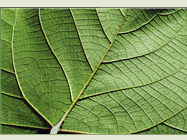
|

|

|

|

|

|

|
|
|
|
|
|
| Claytonia lanceolata var. lanceolata Pall. ex Pursh | Species Image Gallery (opens in a new window) |
||||||||||||||
| TAXONOMY | |||||||||||||||
| Family: | Portulacaceae | ||||||||||||||
| Genus: | Claytonia | ||||||||||||||
| Species Synonyms: | Claytonia caroliniana var. lanceolata (Pursh) S. Wats. | ||||||||||||||
| Common Names: | lanceleaf springbeauty western springbeauty |
||||||||||||||
| DISTRIBUTION | |||||||||||||||
| Canada: | southern British Columbia – southwestern Alberta, southwestern Saskatchewan | ||||||||||||||
| Saskatchewan: | southwestern Saskatchewan; Cypress Hills | ||||||||||||||
| Ecoregion: | Cypress Upland | ||||||||||||||
| HABITAT | |||||||||||||||
| Saskatchewan: | woods, clearings, shrublands, and prairie ravines | ||||||||||||||
| Canada: | rich woods, alluvial thickets, and moist slopes | ||||||||||||||
| RARITY STATUS | |||||||||||||||
| Provincial
Status According to Harms (2003): |
Threatened |
||||||||||||||
| Nature Conservancy Status: | G5 S1 |
||||||||||||||
| Saskatchewan
Species at Risk Status: |
None |
||||||||||||||
| COSEWIC Status: | None |
||||||||||||||
| Lanceleaf springbeauty is threatened because of rarity in Saskatchewan. It is regionally restricted in the province. No immediate threats are known but may occur in the future. | |||||||||||||||
| SPECIES DESCRIPTION | |||||||||||||||
| Height: | 5 – 20 cm | ||||||||||||||
| Roots: | fibrous | ||||||||||||||
| Stem: | underground tubers nearly round, 5 – 20 mm diameter; above ground stems unbranched, fleshy, hairless | ||||||||||||||
| Leaves: | basal leaves 1 – 6, often absent at flowering, stalked, 5 – 40 cm long, 2 – 15 mm wide, linear to lance-shaped; stem leaves 2, sessile, 1 – 6 cm long, 5 – 20 mm wide, oval to narrowly lance-shaped | ||||||||||||||
| Inflorescence: | unbranched 3 – 15-flowered, short; bracts 1 | ||||||||||||||
| Flowers: | sepals 4 – 6 mm, oval; petals 5 – 20 mm, white to pink, rose, magenta, yellow; stamens 5 | ||||||||||||||
| Fruits: | capsule; seeds shiny, black, smooth, appendage for ant dispersal present | ||||||||||||||
| |||||||||||||||